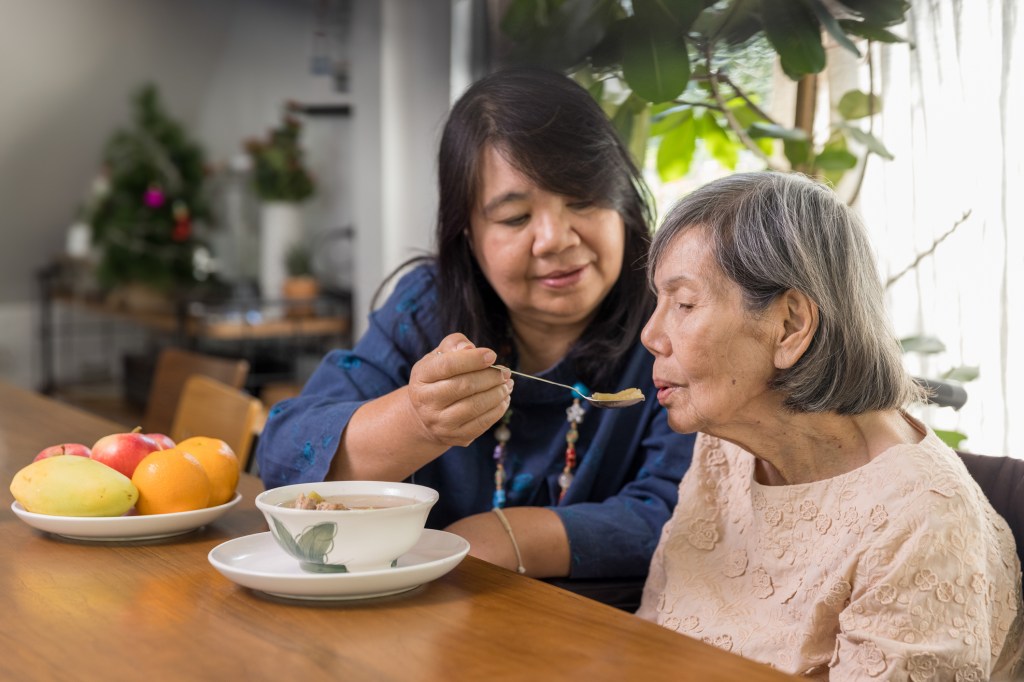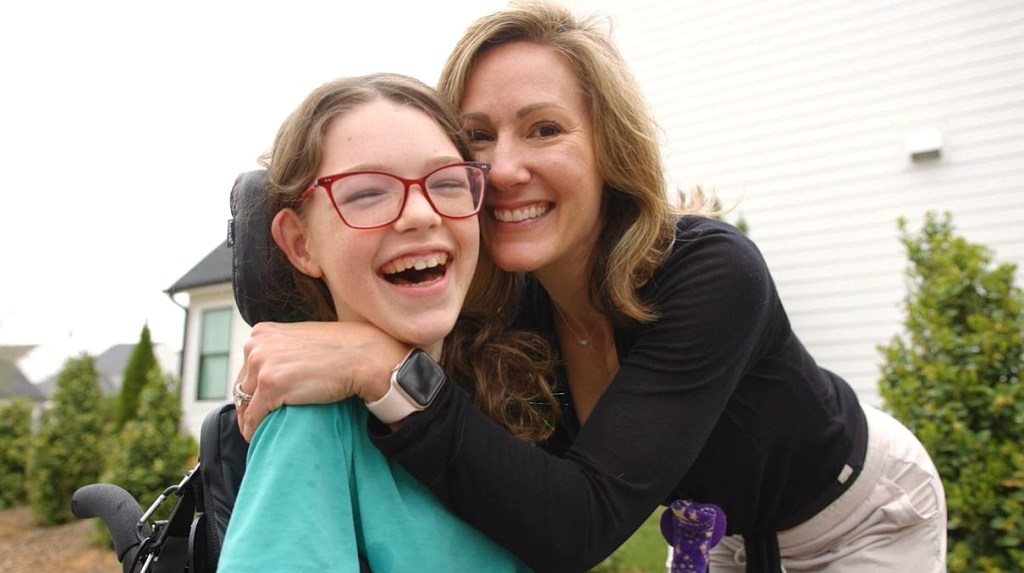
Cold Weather, Illness, and Caregiving: 3 Tips to Help Protect Caregiver Health This Season
Winter is historically a challenging time for family caregiving with the threat of serious health risks to older adults from illness, which often sees a rise during these colder months. “This time period may be especially difficult for caregivers and their loved ones,” says Rachel Chastain, Manager, Careforth Care Management. “The threat of cold weather illness places an even greater necessity on the efforts of caregivers to keep their loved ones safe and healthy.”
Older adults and people with disabilities are at higher risk to experience more severe symptoms of not only the COVID-19 virus, but also the common cold, flu, and RSV. The flu can be serious for everyone – but for adults age 65 years and older, the risk of flu-related complications like pneumonia and hospitalization is particularly high. Immune systems decline as adults age. And even almost four years since the first COVID-19 lockdown, we’re continuing to see cases caused by that virus across the United States.
Winter is a great time for caregivers to re-commit to putting themselves first as you are equally responsible for your own and your loved one’s self-care. While family caregivers have limited time, it is critical to not compromise your own physical and emotional well-being. Below are some self-care tips that can help you to avoid common pitfalls this winter:
Avoid: Falling out of touch with friends due to stress or sadness
Studies have revealed that 36 percent of caregivers describe their situation as highly stressful, and nearly 33 percent of caregivers report experiencing mental or behavioral health problems such as anxiety, depression, or substance use. Many also experience social withdrawal as a reaction to anxiety or depression. Unfortunately, not keeping in touch with friends and family is more prevalent at a time when interacting with anyone outside your household requires greater planning and preparation.
Caregiver Health Tip: Schedule recurring get-togethers.
Connecting with others was one of the key ways to maintain your emotional health during the COVID-19 outbreak, according to the CDC. This holds true yet today. Plan outdoor or socially distant walks if you can, as this will have the double benefit of staying active and social. Even if you don’t have friends locally, you can still stay in touch by scheduling regular phone or video calls. You can even plan for virtual group activities such as cooking, playing an online game, or doing a craft project over video chat. This could be a good way to add some variety to the repetitive winter days. Be intentional about socializing!
Avoid: Spending time worrying or thinking about how things could be different.
Stressful situations can trigger ruminating thoughts, which make it more difficult to get through what needs to be done throughout the day and can become a negative cycle. In one report from the American Psychological Association, ruminators were found to develop major depression four times as often as non-ruminators.
Caregiver Health Tip: Do something to feel better in the present and focus only on the things you can control
Distraction and redirection are the easiest ways to break the cycle of rumination. Treat yourself to a flower bouquet, or better yet, start taking care of potted plants if you have a green thumb. If you live in a cold climate, bringing greenery into your home in the dead of winter will brighten the mood of your entire household. Music and dancing are also great remedies for stress and bring you into the present moment in a way that gives you the strength to carry on with the day. By grounding yourself in the present and improving the things you can control, caregivers can reduce the risk of caregiver fatigue and improve self-care habits. And make sure you have people to talk to. Better yet, ask them to take over caregiving duties periodically so you can focus on self-care.
Avoid: Being a one-caregiver show and trying to do it all by yourself
Remember, you don’t have to do everything yourself and it’s okay to ask for help. In fact, it’s crucial to engage your Caregiving Support Team in your caregiving journey, ensuring that you don’t spread yourself too thin and allow yourself time to take care of your well-being.
Caregiver Health Tip: Expand your caregiving support network and make connections
There are about 53 million family caregivers in the US, and while caregiving is always a unique and personal experience, there are elements of caring for a loved one that anyone who has lived through it can relate to. If you haven’t done so already, this winter is an excellent time to consider groups that bring family caregivers together. Connecting with other family caregivers can be as easy as joining Careforth’s Facebook group Caregiver Nation, or creating or expanding your caregiving support team. By allowing others to assist and support you, you can also engage the person you care for and interact with new people to create shared memories, all while expanding your Caregiving Support Team in the process.
Taking Care of Yourself and Your Loved One This Winter
Caregiving often comes with many challenges that one must navigate year-round, and the colder months and holiday season can cause those worries to increase. Whether it’s worrying about the health of your loved one through flu season or feeling socially isolated during the winter, it’s important to take care of yourself and find ways to improve your own well-being. In doing this, it will improve the care you are able to provide to your loved one.
We at Careforth strive to provide you with the resources and connections that ensure you feel supported at every turn in your caregiving journey. Visit the How We Help page on our site to learn more about how Careforth supports caregivers or contact us for more information.
More insights like this:
-

What is the South Dakota Medicaid HOPE Waiver?
Read more: What is the South Dakota Medicaid HOPE Waiver?The Home and Community-Based Options and Person Centered Excellence (HOPE) Waiver is a Medicaid waiver program supporting care for nursing home-eligible individuals in non-nursing home settings with the goal of reducing costs. The program makes it possible for qualifying elderly recipients to remain in community settings, such as their own homes or independent…
-

Get Paid to Be a Caregiver Through Connecticut Medicaid
Read more: Get Paid to Be a Caregiver Through Connecticut MedicaidFamily caregivers improve the quality of life and well-being of their loved ones across Connecticut. They often provide around-the-clock care at home including hands-on support with activities of daily living (ADLs), all while ensuring the health and safety of their loved one. Many caregivers don’t realize they can receive payment and support for…
